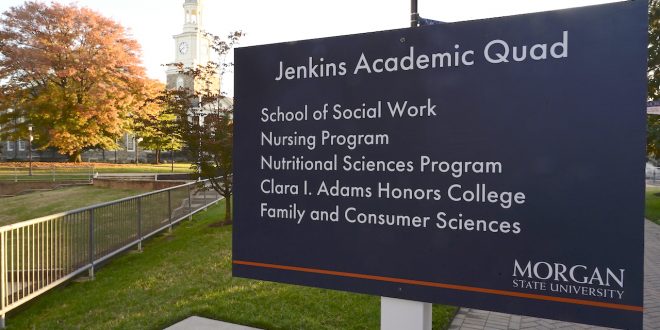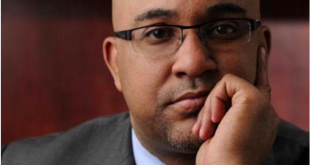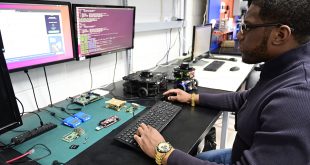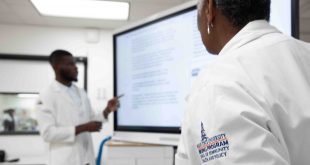Program Will Provide Critical Aid to the Maryland Health Department’s Effort to Address Disparities and Better Serve the Behavioral Health Needs of Underserved Communities

Morgan State University School of Social Work (SSW) has been awarded a $960,641 subcontract from the Behavioral Health Administration (BHA) of the Maryland Department of Health (MDH) to provide frontline support in assessing and treating mental health needs of Baltimore City families and youth. Teaming with the Behavioral Health Integration Program for Pediatric Primary Care Program (BHIPP), faculty and students from Morgan’s Master of Social Work (M.S.W.) program will conduct critical field work focusing exclusively on underserved minority communities, many of which have experienced long-term trauma and great disparities in mental health treatment. The effort will establish a collaborative learning community to support behavioral integration and foster interprofessional learning opportunities for next-generation social work clinicians.
The primary goal of the project is to support pediatric primary care providers, strengthening their capacity to meet the behavioral health needs of young people in their care. To accomplish this goal, Morgan State and its M.S.W. program participants will engage in training, telephonic and telepsychiatry consultation, information gathering and dissemination, referral for specialized services available statewide and additional activities designed to support primary care providers.

“For our future clinicians who aspire to affect the communities they serve in bold, meaningful ways, programs like these offer invaluable field experience that will inevitably help bridge gaps and enhance service within our most underserved populations,” said Anna McPhatter, Ph.D., LCSW, dean of the School of Social Work at Morgan State. “As an anchor institution in Baltimore, we are proud to carry the mantle by addressing critical issues in behavioral health and creating new pathways for rehabilitation.”
The Morgan State BHA/MDH subcontract in coordination with BHIPP places a significant emphasis on urban areas and populations suffering from shortages of child psychiatry practitioners and other health-related disparities. Working collaboratively with primary care providers, Morgan M.S.W. program participants will be instrumental in early intervention, reducing long-held stigmas associated with mental illness and increasing the population’s general knowledge of mental health services.
“To utilize the expanding knowledge base of the social work profession and address the growing complexity of the population it serves, it is important that all social workers be equipped with practical field work related to their academic pursuits,” said Laurens G. Van Sluytman, Ph.D., LCSW, associate professor and assistant dean of SSW and co-principal investigator for the program.
SSW will identify and supervise students to serve as social work interns, Dr. Van Sluytman said. The interns will conduct field placements within primary care settings and establish working relationships with pediatric offices to coordinate mental health screenings and psychiatric consultations and better understand the overall goal of integrated care. Dr. Van Sluytman anticipates that, through this advance practicum, Morgan students will gain deeper insights into the implementation process, identify strengths and weaknesses within the program design and improve upon the program in future scale-up efforts.
The expanded minority health component secured by the Social Work program at Morgan through this subcontract is part of an ongoing statewide interagency initiative that has enlisted the support of advanced-year M.S.W. students from Maryland higher education institutions. The project was initially forged as a partnership with the University of Maryland School of Medicine and The Johns Hopkins University School of Medicine and was broadened to include Salisbury University, which placed interns in rural pediatric primary care practices in Western Maryland and on Maryland’s Eastern Shore. Morgan State’s involvement and its emphasis on urban/minority health further broadens the scope of the project.
About MorganMorgan State University, founded in 1867, is a Carnegie-classified doctoral research institution offering more than 125 academic programs leading to degrees from the baccalaureate to the doctorate. As Maryland’s Preeminent Public Urban Research University, Morgan serves a multiethnic and multiracial student body and seeks to ensure that the doors of higher education are opened as wide as possible to as many as possible. For more information about Morgan State University, visit www.morgan.edu.
MEDIA CONTACT(S):
Larry Jones or Dell Jackson, University PR
(443) 885-3022
 Morgan State University Newsroom Morgan State University
Morgan State University Newsroom Morgan State University





